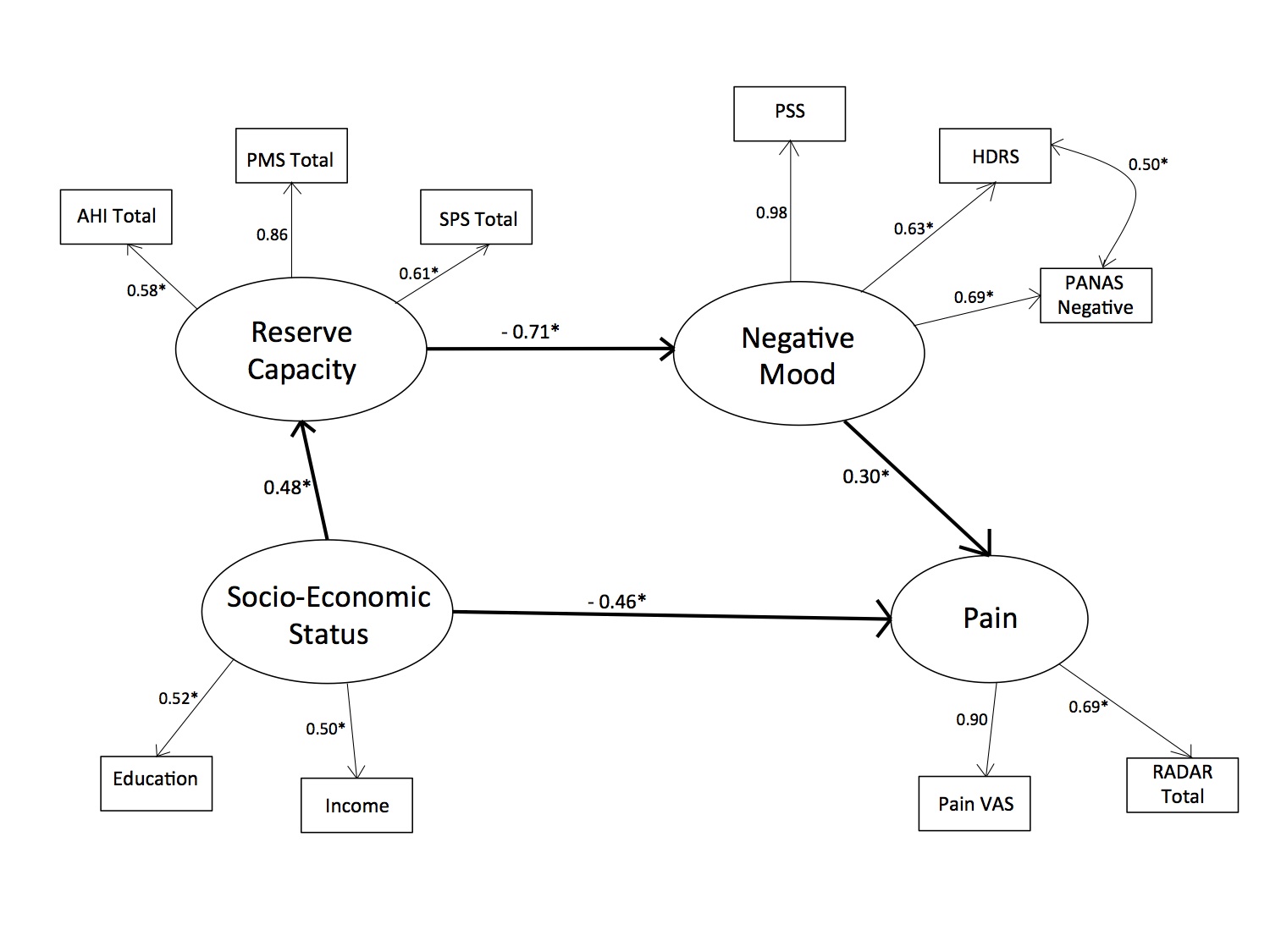Session Information
Session Type: Abstract Submissions (ARHP)
The Reserve Capacity Model in Patients with Rheumatoid Arthritis: Understanding the Relationship of Socioeconomic Status, Psychosocial Resources, Mood, and Pain.
Background/Purpose: The reserve capacity model is a framework for understanding how low SES may affect health outcomes through both positive and negative emotions separately and the depletion of psychosocial resources. The purpose of this study was to explore the reserve capacity model in persons with rheumatoid arthritis, using structural equation modeling (SEM; see Figure 1). It was hypothesized that SES would be negatively related to self-reported pain directly and/or indirectly through the potential mediators of positively related psychosocial resources (reserve capacity) and negatively related negative mood. Methods: Data of 106 participants were drawn from a randomized comparative efficacy trial of psychosocial interventions for RA. In the hypothesized model, SES (years of education and annual income) predicted pain (Pain VAS and Rapid Assessment of Disease Activity in Rheumatology total joint score) through reserve capacity (Personal Mastery Scale, Arthritis Helplessness Index, and Social Provisions Scale), and negative mood (Hamilton Depression Rating Scale, Perceived Stress Scale and the Positive and Negative Affect Schedule), using EQS 6.1 to evaluate the structural model. Results: SEM revealed a confirmed the hypothesized relations among model constructs (see Figure 1). Higher SES was positively associated with reserve capacity, which predicted lower levels of negative mood and related directly and positively to pain severity. The indirect effect of SES on pain via reserve capacity and negative mood was significant (βindirect=-.10, p=.027). Evidence supported a partial mediation of reserve capacity and negative mood between SES and pain, as the direct effect of SES on pain remained significant after controlling for the attenuating mediators of reserve capacity and negative mood. Conclusion: These findings underscore the importance of a multi-dimensional framework in evaluating pain in RA using a structural-equation approach. The mediating variables of reserve capacity and negative mood may play major roles in explaining pain in RA, and represent modifiable factors for targeted interventions.
Disclosure:
D. Azizoddin,
None;
T. Draper,
None;
S. Ormseth,
None;
P. M. Nicassio,
None;
M. R. Irwin,
None;
M. Weisman,
None;
H. Wilson,
None.
« Back to 2014 ACR/ARHP Annual Meeting
ACR Meeting Abstracts - https://acrabstracts.org/abstract/the-reserve-capacity-model-in-patients-with-rheumatoid-arthritis-understanding-the-relationship-of-socioeconomic-status-psychosocial-resources-mood-and-pain/

